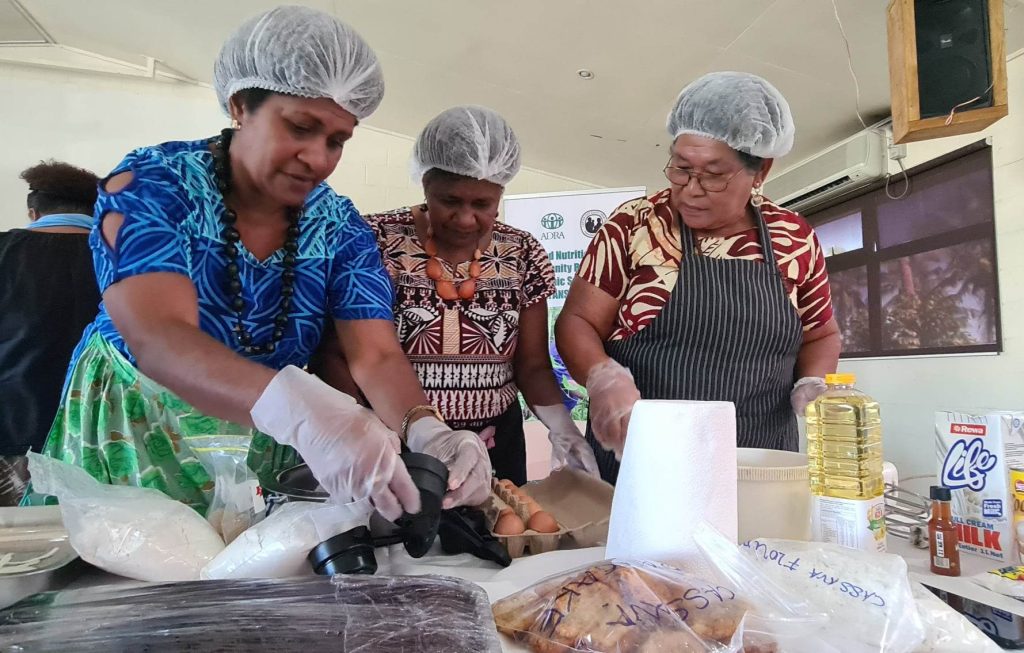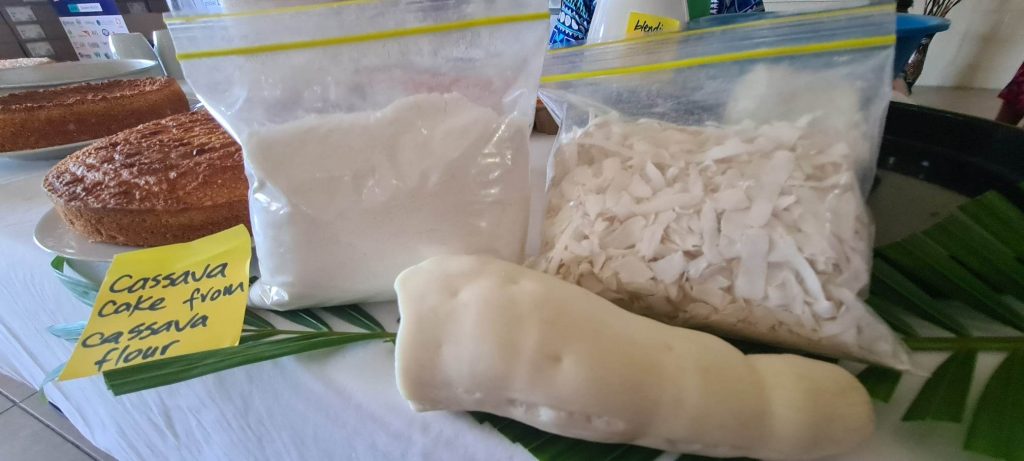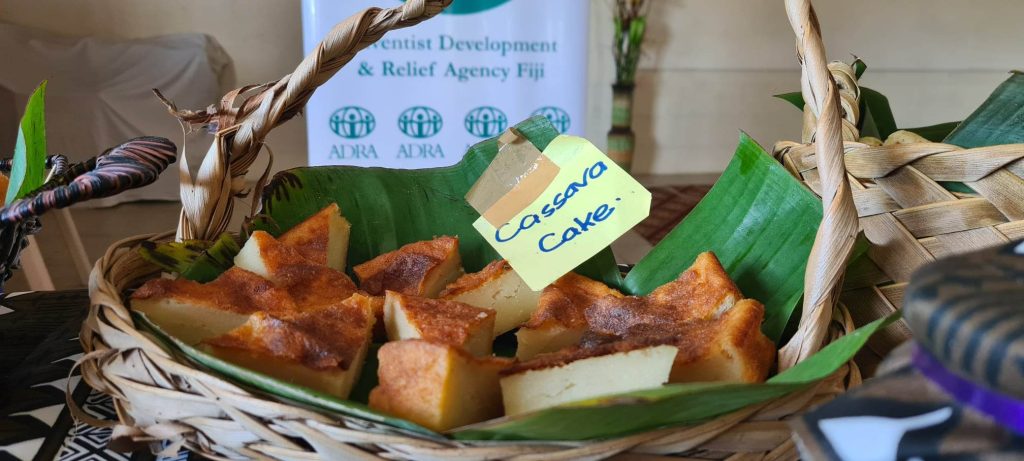
Villagers of Navatuyaba in the district of Toga in Rewa have now focused on planting more staple food after they have ventured into producing their own flour from root crops for their sustainable livelihood. They have acquired their flour-making skills from the training conducted by the Adventist Development and Relief Agency (ADRA) Fiji as part of its Latter-Day Saint Charities funded development project known as the as the Food and Nutrition Security, Community Resilience and Economic Sufficiency Project. With COVID-19 pandemic affecting their livelihood which is further plagued by the continuous rise in the cost of living, people from this community situated alongside Fiji’s longest and widest Rewa River, are grateful for the life’s lessons from the project that have enable them to meet their daily needs.
Using the concept of Solesolevaki, the women of the village have been in the forefront of their weekly flour production while their men took to the farm to plant root crops and ensuring their food supplies is never affected, there is a higher motivation now to plant more root crops also in preparedness to Cyclone season. “For us women we worry all the time about food within the household, with new skills now in flour making from cassava, no wastage to root crops, stock up for disaster time knowing that we can use excess harvests to make flour. As women we still have the power to provide variety of dishes within our homes from just one type of root crop,” Navatuyaba Women’s Association President Kalomita Tinai said. “Life became hard for us when the pandemic hit as most of our breadwinners lost their jobs and lucky, we have available land to utilize but we had limitations on how different root crops can be diversified.” Through the Food Preservation and Value Add training, villagers learned not only how to make flour using the available root crops but also how to utilize other fresh produce to create preserved food items and ensuring that there’s no wastage to their products.
“Previously, we met every Monday to work on our various village projects like sowing but now we are meeting to make flour for our homes while we keep aside flour to be used for village activities. We learned that you could store flour up to six months, so this is sealed in airtight bucket and when there is a village event, we do food catering from this flour instead buying from the shop,” Ms Tinai said. Tinai said the training was also timely as recently, Fiji experienced a hike in the price of items including imported flour. They are now selling flour made from cassava, breadfruit, plantain and yam. “We rarely buy flour from the shop now and we are also baking from our homemade flour to sell. We sell our baked goodies with homemade peanut butter and jam, also something we learned to make using the available food supplies with less processed sugar and items bought from the shop,” she said. According to Ms Tinai, from broadening their knowledge and capacity in the kitchen, the men in the village are now expanding their farms to plant more root crops to ensure their supplies are sustainable. And they have added agricultural skills thanks to the Climate Smart Agriculture training conducted in the village through the project which also shift their focus into planting resilient crops but also a wide variety of vegetables.
“The project has been a motivation for us to utilize the available resources making us realize the importance of agriculture. We are now eating fresh supplies from our own plantation and backyard garden which are nutritious in value, and we are also earning a living from the sale of our produce, goodies from our homemade flour and value add items,” Jonetani Reki, 45, said.



